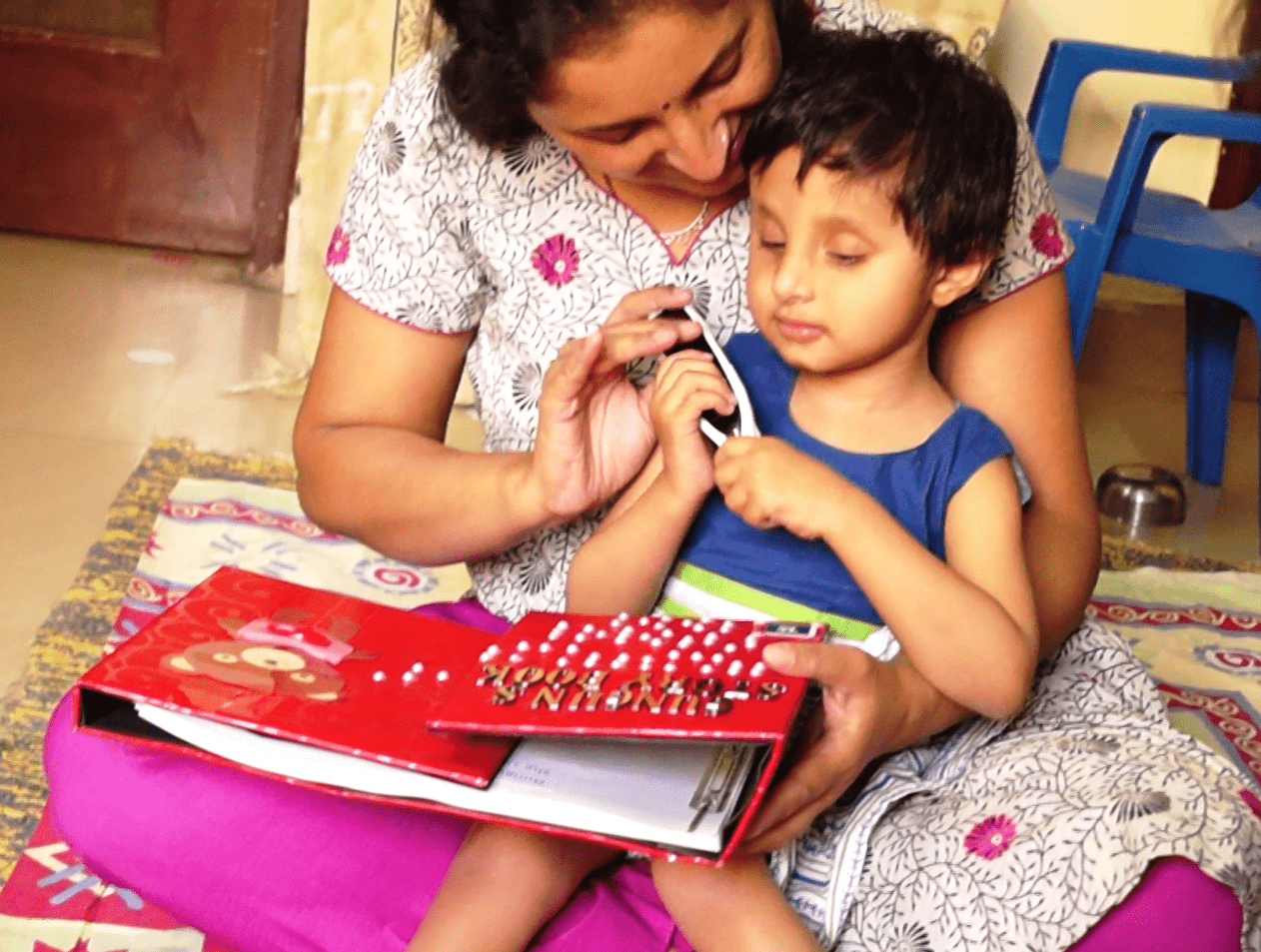By Supriya Das
Photo Credit: Shrangarika Gupta
The thought of a school can be like a nightmare for most parents of children with blindness or visual impairment. Here, by school I mean the so called ‘regular’ or mainstream schools. I have not come across a single parent of a child with disabilities coming to our centre who did not ask whether their child be able to make it to mainstream school ever in life. This is usually followed by the next question which would come in a low, not so confident and trembling voice - and college?
These are very valid questions and as service providers, we appreciate parents who have such concerns. We are very fortunate that the advent of new policies and laws have made it possible for our children to study in any general school irrespective of their disability. For a child with a single disability like visual impairment or blindness, nothing can stop her/him from obtaining education at par with all other children in inclusive set-ups. However, this is possible only if your child is well prepared for inclusion and the school is well equipped to welcome a child with a disability. In both the cases, you as a parent have a remarkable role to play. You prepare your child, you advocate for your child and in this process you sensitize the school and the society by large to provide equal opportunities to your child.
Following are the key areas where you need to work in order to help your child successfully get into a mainstream education system:
1. Intervention
2. Self Help and Independence Skills
3. Social Skills
4. Pre Academic and Technology Training
5. Advocating for your child and sensitizing the school community
1. Early Intervention
You need to start early on. The moment you get to know about your child’s disability, prepare yourself to help the child achieve the developmental milestones like crawling, body balancing, speech and more such milestones that she/he may be missing due to the presence of that particular disability. Therefore, you need to educate yourself by doing some reading and research, joining groups and forums, getting in touch with inspirational people with disabilities, consulting parents who have raised or are raising a child with a disability and getting your child enrolled into a rehabilitation centre or special school in your region to receive formal support and guidance.
2. Self Help and Independent Living Skills
Placing your child in a school means that your child will be away from you and will be unaccompanied for about good two to four hours in the beginning. They will not be surrounded by family members who are on their toes all the time to immediately extend help. Also, as parents you need to keep a watch and educate those who are overly helpful as that will inhibit your child from becoming independent and productive. Hence, it is essential to teach your child the basic life skills so that s/he can gain independence according to her/his age and best potential abilities. Below are some necessary life skills that all children (age 2-5) should acquire before going to an inclusive school.
Toilet Training
Learning to indicate or use the toilet is an important milestone as it brings independence, confidence and self sufficiency in children.Apparently many of our children with visual impairment or blindness may take a little longer to achieve this skill because of their delayed milestones. Therefore, as parents of a child with visual impairment you have to train regular practice to your child to use the toilet properly. You can start to toilet train your child between 18 months to 3 years of her/his age. Some of the ways to toilet train is to baby talk with your child about what is going on, every time they get wet and you change their diaper. Record their frequency and timing of urinating and going to the toilet for a few days. This will help you to anticipate their toilet behaviour and you can take them to the toilet at the right time. If you are using a pot for your child then you can place the pot in the toilet area. This will condition your child that s/he needs to move from the current position, show some uneasiness, and notify the person near them through speech, vocalization or gestures every time they get an urge to pass urine or motion. Remember to praise every little success and be casual about accidents. Your child may take a long time to master this skill and that is absolutely normal.
Another important aspect of toilet training is when you are with your child in a group or public place; ensure that you do not check her/his diaper for wetness or worse change the diaper in front of people. Never expose your child in front of people, even including those that you know. Visually Impaired children need to realize that using the toilet is a private act. Children without visual impairment learn this naturally through incidental learning. Hence, this is something that needs to be taught to visually impaired children from the very beginning to avoid embarrassments and most importantly harassments.
To be continued....
About the Author
Supriya Das is Program Coordinator at the Infant to Toddler Program at Saksham, an NGO that works in the domain of disability. Her area of expertise involves working with children with visual impairment, deaf-blindness, and multiple disabilities. She also works with parents, caregivers, and communities to create awareness and provide training.
At Saksham’s Infant to Toddler Program, early intervention services are provided to children with sensory impairment (age 0-4) and training support to their families. Connect to Saksham on Facebook at https://www.facebook.com/SakshamIndia2003/. For more information, Supriya can be reached at supriya.das07@gmail.com. She also writes a blog on teaching and learning strategies for children with visual impairment, deaf-blindness and multiple disabilities which can be accessed athttp://igrowup.weebly.com/


Facebook comments